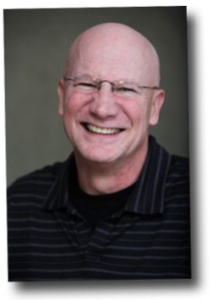 This is from C.J. Mahaney… (Emphasis in bold and/or italics is mine. RE)
This is from C.J. Mahaney… (Emphasis in bold and/or italics is mine. RE)
I have learned a very important lesson over the years: those I have the privilege to teach are not usually most affected by the general content of my teaching; they are often most affected by what I am most passionate about.
I am still learning this, and it’s all too easy to forget.
When I teach, my passion must be theologically informed, and proportional to the content or point I am making in the sermon. This insight is not original with me (no insights are original with me!), and I have found this point better articulated by Dr. Don Carson in a lecture he delivered last year at the CBMW Different by Design Conference (Feb. 2, 2009, Minneapolis, MN). While speaking of those who are passionate for social justice, he delivered this caution:
There are some wonderful instances of ordinary Christians, not least the young, who are concerned to preach the whole gospel unabashedly and do good first to the household of God and then, as much as is possible, outside as well [Galatians 6:10]. That has got biblical mandate behind it.…
My warning would be to those who are coming along and talking a lot about, “I want to be faithful to the gospel, but I also want to do social justice of good works.” My warning would be: it is not just what you do, it is what you are excited about.
And the implications are broader than social justice. All manner of topics can capture our excitement, like church methodology, parenting style, or any other point of application. Carson continues,
If I have learned anything in 35 or 40 years of teaching, it is that students don’t learn everything I teach them. What they learn is what I am excited about, the kinds of things I emphasize again and again and again and again. That had better be the gospel.
If the gospel—even when you are orthodox—becomes something which you primarily assume, but what you are excited about is what you are doing in some sort of social reconstruction, you will be teaching the people that you influence that the gospel really isn’t all that important. You won’t be saying that—you won’t even mean that—but that’s what you will be teaching. And then you are only half a generation away from losing the gospel.
Make sure that in your own practice and excitement, what you talk about, what you think about, what you pray over, what you exude confidence over, joy over, what you are enthusiastic about is Jesus, the gospel, the cross. And out of that framework, by all means, let the transformed life flow.
Seminary professors and preachers will transfer to others what they are most passionate about. And those we serve should see a difference between our passion for the gospel and our passion for other issues. It’s worth asking ourselves regularly: Is it clear to others that nothing excites me more than the gospel of Jesus Christ and Him crucified?
